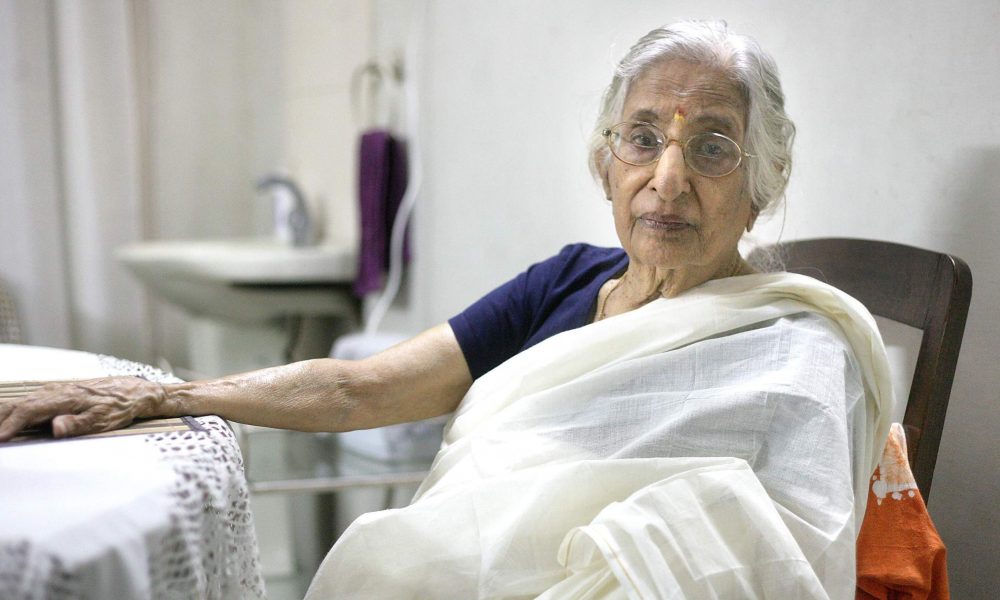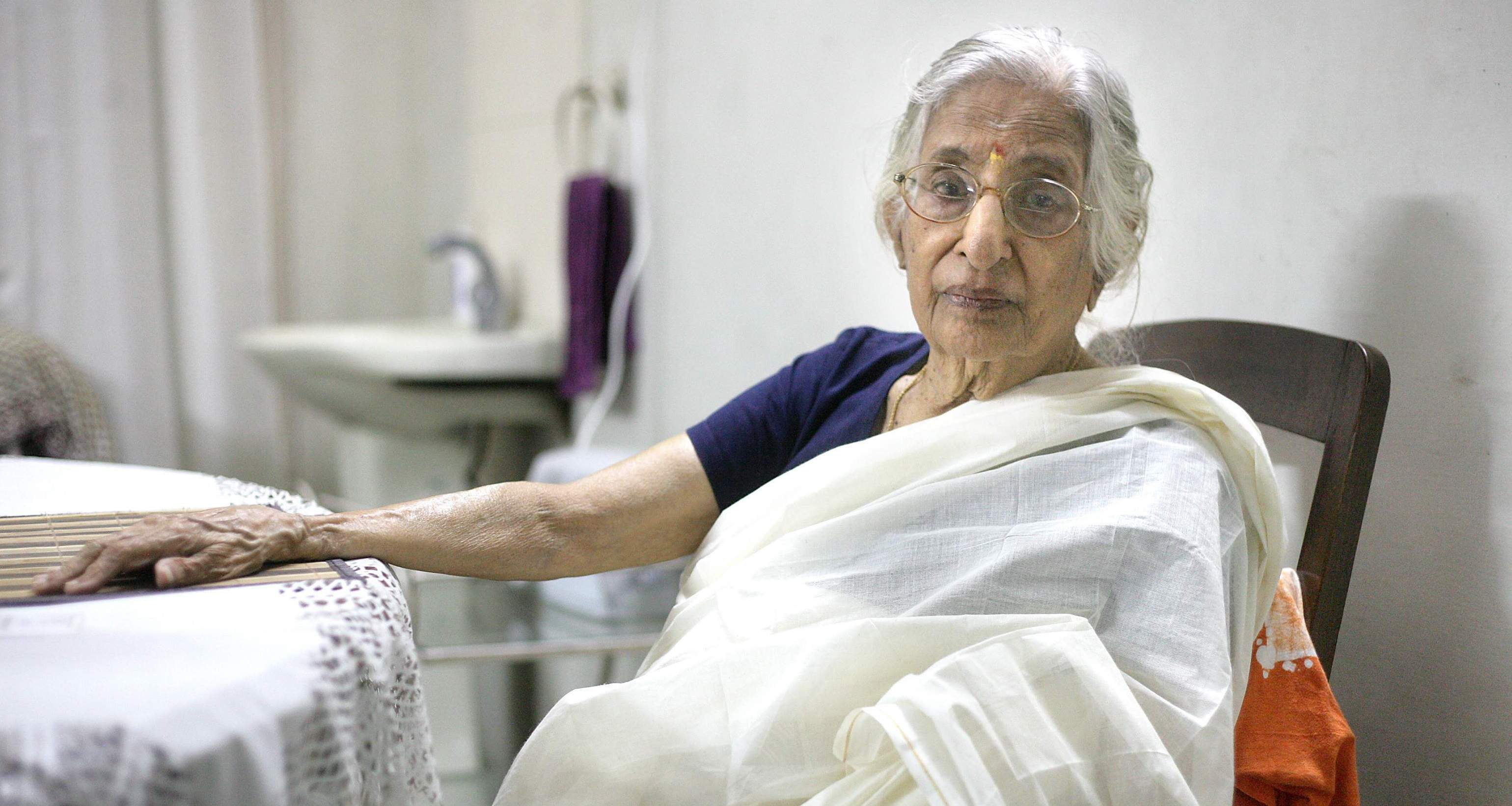
Inspiring Doctors; Meet India’s first female psychiatrist, who still practices at 95
 “As a child, I had always wanted to know why people behave the way they do. It’s the mind that decides every action. Showing love and affection is done consciously, never without the mind’s consent.” India’s first woman psychiatrist didn’t choose her profession just for its sake. She knows what exactly mental health means and she knows what she can do. At 95, Dr Sarada Menon continues to treat more than twenty patients a day.
“As a child, I had always wanted to know why people behave the way they do. It’s the mind that decides every action. Showing love and affection is done consciously, never without the mind’s consent.” India’s first woman psychiatrist didn’t choose her profession just for its sake. She knows what exactly mental health means and she knows what she can do. At 95, Dr Sarada Menon continues to treat more than twenty patients a day.
A recipient of several awards, including ‘Padma Bhushan’, Dr Sarada established India’s premier mental health NGO, Schizophrenia Research Foundation (Scarf), at Chennai in 1984.
“My parents were disappointed when I was born. I was the eighth child and their seventh girl! After six girls, my brother was born. So they expected another boy, but I arrived at their dismay. Most of my growing up years were spent in my sister’s home,” recalls Dr Sarada. After completing her school life, Dr Sarada was keen on pursuing her career in medicine. At that time, in order to get a medical degree, she had to first get a degree in Science. Despite her parents’ distress, Dr Sarada got into Women’s Christian College, Chennai, and completed three years of under-graduation in two years. Following that, she joined Madras Medical College and at that time women candidates got a fee concession which in turn motivated her.
“When I was a medical student, the prevalent notion was mental disorders can’t be cured completely, and psychiatry as a separate field of the medical study found few takers,” says Dr Menon. “After finishing my MD in medicine, I completed a two-year course in psychiatry from Nimhans, Bangalore. Working as a doctor I realised the need to rehabilitate these patients who were abandoned by their own families and looked down upon by society,” she says.
Her journey of rehabilitating the patients started in the early 1970s. She converted one of the rooms in her house into a residential centre and collaborated with YMCA to open an aftercare centre for patients, who were counselled and provided vocational training. The patients were treated as outcasts even after getting discharged from the hospital. But once after they regain their productivity through rehabilitation, their families were more than willing to take them back, says Dr Sarada.
SCARF, her dream was established in 1984. Today it offers a temporary residential facility, advanced telepsychiatry methods of treatment, vocational training and employment opportunities; even a mobile clinic operates for the benefit of the mentally ill, besides research projects and awareness programmes being conducted around the year.
“Today, the biggest health issues in India are depression and schizophrenia, while in the coming years, newer problems due to addiction to drugs, mobile phones, and electronic devices will emerge,” says Dr Sarada. According to her, depression first needs to be detected and then requires immediate medical help. “The most important thing is to detect depression from unexpected changes in daily functioning- routine work, social responsibilities, communication, grooming, recreation, etc. The next step is to seek, medical help!”
While several hospitals, NGOs and medical practitioners are working towards tackling these issues in India, several hurdles still remain, leading to an almost 80% gap between the need for treatment and its provision. ”Disability as a result of mental illnesses needs to be attended through rehabilitation practices. While there are several islands of activity, interest and approaches in this regard, it hardly covers the number of mentally-disabled in India. We have to create wealth from this waste,” she adds.
Source: 1. https://timesofindia.indiatimes.com/city/chennai/The-doctors-in-even-at-90-Chennai-psychiatrist-says-goal-still-elusive/articleshow/20020626.cms
2. https://www.thehindu.com/features/magazine/unconditional-giver/article2573633.ece
3. https://www.thebetterindia.com/166187/chennai-psychiatrist-sarada-menon-scarf/
4. http://www.indianwomenblog.org/indias-first-woman-psychiatrist-dr-sarada-menon-talks-about-our-mental-health-crisis/